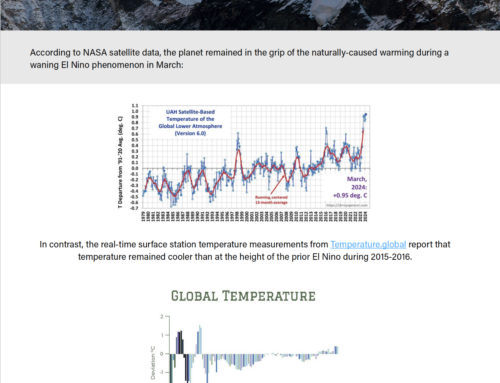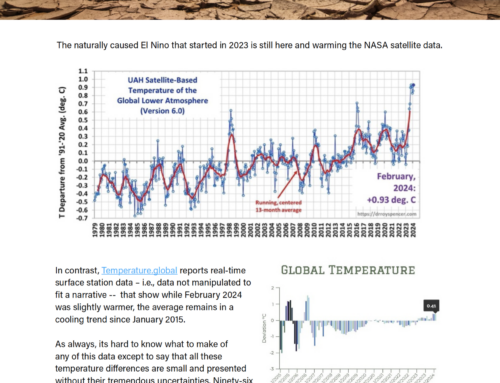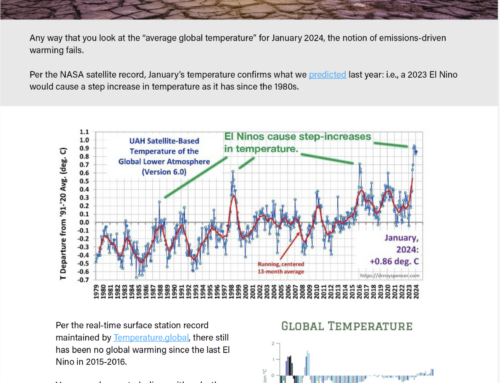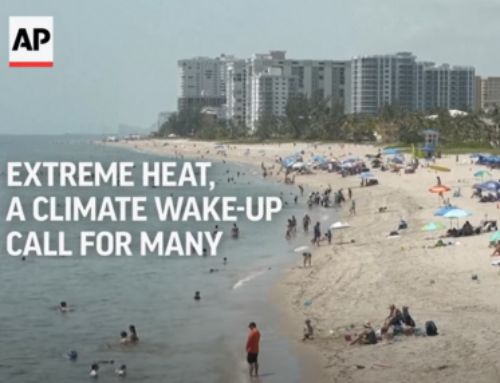For Immediate Release:
May 13, 2016
Contact:
Craig Richardson
[email protected]
703-981-5553
Washington, D.C. – Today the public came one big step closer to learning the truth behind how university professors launched “a national campaign” to have state attorneys general investigate and prosecute political opponents under the Racketeer Influenced and Corrupt Organizations Act (RICO) — investigations which have now swept up think tanks and climate scientists who have dared challenge the climate agenda and claims made to force it into place.
Representing Christopher Horner and the Competitive Enterprise Institute, attorneys from the Free Market Environmental Law Clinic successfully argued that the public records of Professor Edward Maibach should now be disclosed to all, having previously been submitted to the court under a protective order. Having reviewed these emails under seal, we were aware of their connection and importance to the ongoing and expanding abuses by state AGs to use law enforcement powers to go after opponents.
On April 22, the Richmond (VA) Circuit Court held that the emails were public records, that they are not protected by any exemption and thus must be disclosed. Because they were being held secret under a protective order, and in light of the Court’s decision, today FME Law asked the court to dissolve the protective order and allow the records to be made public. The Virginia Assistant Attorney General, representing George Mason University, asked the protective order remain in place and that the ruling be stayed while it appealed the underlying decision to the Supreme Court. After extensive oral argument, the Court concluded that the appeal would most likely fail and thus it dissolved the protective order, allowing the public to view records about a disgraceful campaign that the public paid for.
Director of the FME Law Clinic, David W. Schnare, commented, “We need to protect the work of academics as set forth in Freedom of Information Acts, which laws make exception for information that should be legitimately protected, for example relating to research. But when professors voluntarily enter the policy arena, particularly in this case when they use their positions specifically to advance a political agenda, they are no different than any other government employee and the law treats them accordingly.”
FME Law, the Energy & Environment Legal Institute, and others should now look forward to publicly discussing what this information reveals about the ongoing campaign by taxpayer funded academics, law enforcement officials, and major political party donors to use the offices of attorney general to prosecute and silence political opponents.
Please see the links below for documents relating to this case, and released e-mails:
/wp-content/uploads/2016/05/img20160205_17490509.pdf
/wp-content/uploads/2016/05/img20160205_17421987.pdf
/wp-content/uploads/2016/05/img20160205_17394962.pdf
/wp-content/uploads/2016/05/img20160205_17361082.pdf
/wp-content/uploads/2016/05/img20160223_13493972.pdf
The Energy & Environment Legal Institute (E&E Legal) is a 501(c)(3) organization engaged in strategic litigation, policy research, and public education on important energy and environmental issues. Primarily through its petition litigation and transparency practice areas, E&E Legal seeks to correct onerous federal and state policies that hinder the economy, increase the cost of energy, eliminate jobs, and do little or nothing to improve the environment.
-30-






